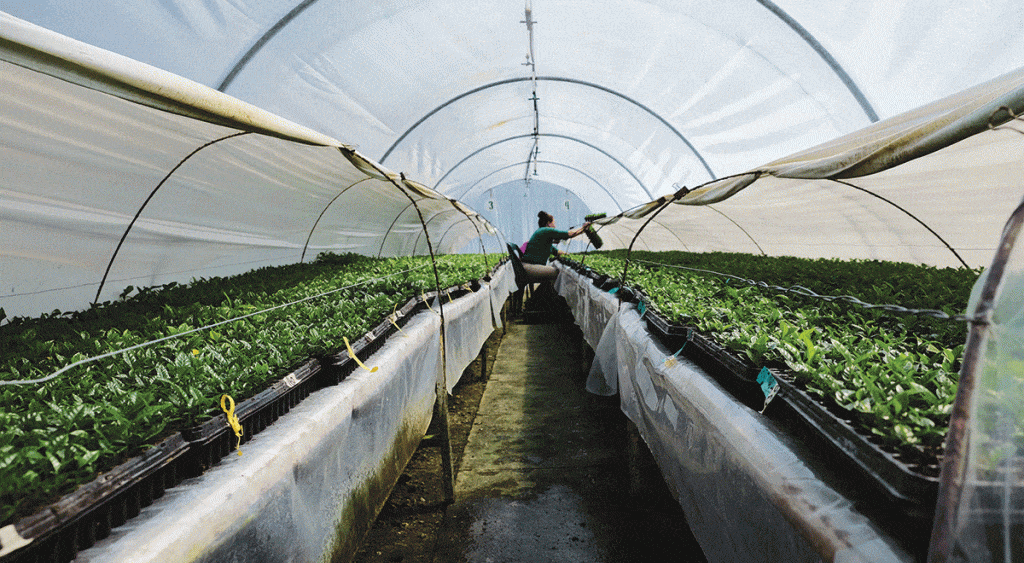World Coffee Research (WCR) has published its 2020 Annual Report which lists the organisation’s highlights from the year, which were achieved in collaboration with its global network of partners.
“The world was tested in unprecedented ways in 2020, and coffee agriculture was no exception,” wrote Dr. Jennifer “Vern” Long, CEO of WCR, in the report.
“The global pandemic proved beyond a doubt that diversity confers resilience, whether we are talking about individual coffee farms, roaster supply chains, entire global economies, or coffee genetic diversity.”
The report saw 217 coffee companies, which according to the report represent one-fifth of the global market share, supporting WCR and the results from the 2020 report.
In 2020, WCR evaluated 82 variety candidates and accessions of coffee beans, many of which were done for the first time. Cuppers from 22 organisations completed these evaluations, based on the best varieties for commercial release.
The company also worked to increase coffee farmers access to trees that were healthy and genetically “pure” across Latin America. This included assessing 66 seed lots to ensure genetic purity and confirming wide-scale seed purity in order to produce 25.8 million trees annually.
The report also saw WCR supporting farmers with greater accessibility to high-quality plants across 16 countries. This was done through advancements in DNA fingerprinting, seed lot clean-up, and breeding program evaluation and training.
“I strongly believe that World Coffee Research opens the door to an unprecedented opportunity to shape collectively our sector’s research agenda to preserve diversity of Origins and improve the livelihoods of millions of farmers,” says Giacomo Celi, Sustainability Director of Mercon Coffee Group who announced a long-term partnership with WCR in early 2020.
A global total of 262 collaborative research trials were carried out directly in farmers’ fields to test variety performance in 14 countries.
Three new global public resources were published including the development of a fast, low-cost single nucleotide polymorphisms (SNP) based DNA fingerprinting platform. This platform aids with a variety of clean-up and modern molecular breeding approaches designed to be used in different producing countries.
WCR also created a modified Coffee Breeding Program Assessment Tool, led by the University of Queensland. This tool assists coffee breeding programs across the globe with assessing and improving coffee farm effectiveness.
The most up-to-date and complete study of Arabica genetic diversity was also released in 2020 as part of WCR’s goal to improve identity tracing. The report also confirmed the Arabica seed’s recent evolution.
In Latin America, WCR also launched its newest hub in collaboration with member countries of Promecafe, and the hub’s Honduras host, Ihcafe. These hubs provide the region with access to breeding populations, experience, and materials that can create new varieties of coffee that benefit local coffee producers.
“Our strategy supports 11 focus countries containing 50 per cent of the world’s smallholder coffee farms and 32 per cent of global coffee experts,” the WCR report stated.
WCR’s new 2021 to 2025 global strategy was based on 137 interviews and 898 stakeholder surveys with individuals from across the supply chain. This data, combined with WCR’s foundational efforts, formed the basis of its newest strategy to “preserve origin diversity in the face of the climate crisis by accelerating innovation in coffee agriculture”.
While the organisation’s core work will continue to focus on genetic improvement, WCR says it seeks to work across the entire “innovation pipeline” to provide farmers with greater access to improved seed varieties.
“The strategy’s primary objectives are to foster increases in productivity, profitability, and climate resilience, to enhance quality across major market segments, and to mitigate supply risk and advance against climate mitigation goals in 11 strategic countries,” the report states.
“Prioritising origin diversity ensures the coffee industry can access the unique flavours that coffee drinkers want, and coffee businesses rely on, and distributes the economic benefits of coffee-to-coffee farmers in key origins.”
Designed to link market demand and national research programs, WCR seeks to create tools and approaches to accelerate progress in coffee agricultural research. This is to increase value for the global industry and the farmers and consumers within.
For more information on the report please visit www.worldcoffeeresearch.org/work/annual-report-2020/

